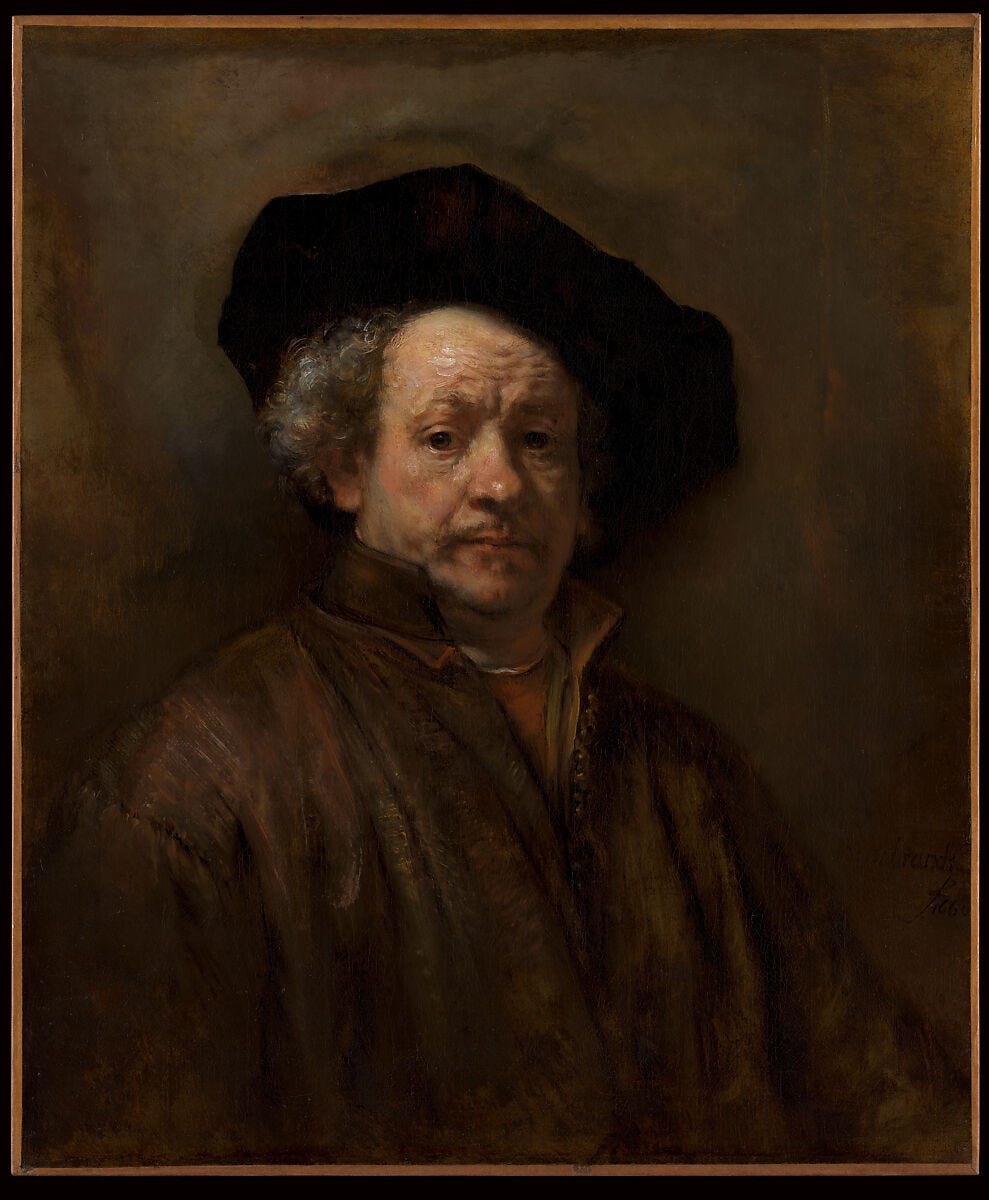Ton Koopman is a Dutch conductor who has recorded all of the extant Bach cantatas with the Amsterdam Baroque Orchestra. The recordings of Cantatas 106 and 21 I listened to for today’s post are confident and direct and unfussy.
I’ll focus on one extraordinary song tucked inside the second movement of Cantata 106 whose text is taken from Psalm 90. The title is Ach, Herr, lehre uns bedenken, daß wir sterben müssen, and the direct German translation is “Ah, Lord, teach us to consider that we must die”. (The King James version puts a little lip gloss on it: “So teach us to number our days, that we may apply our hearts unto wisdom.”)
Teach us to consider that we must die.
That line could have expressed the same sentiment in panic mode: “We’re all gonna die!” Instead, it’s a plea. This song is a prayer, yearning for God himself to give us the ability to find solace in the inevitable.
We live in the gap between the knowledge of our demise and our incapacity to do anything about it. This is the central feature of the human experience; it’s what sets us apart from the animals. We instinctually — and understandably — shove life’s finitude to the back of our minds to get through the day. You’d never go to the DMV if you actively think your appointment is on one of your few days alive. This is all basically impossible to manage psychologically, and that’s why we turn to prayer, as a yearning to come to terms with the unknown about death and what lies beyond.
How to set this message to music? Do you go bleak, doleful, hopeful? Maybe it should be cheerful because God is generous and caring.
Bach chooses an exhaled lament. The first word of the vocal (‘Ach!’) is the highest note in the phrase, and it’s set on the 4th beat, and ‘Lord’ is lower, on the following downbeat. It’s a resigned sigh: “Ah, Lord.” The singer is like, “What kind of position have You put me in, to be alive knowing I’ll die?” There’s also a shade of, “Why did you do this to me?” The rest of the plea continues in a descending melody, concluding with ‘die, we must’, with ‘must’ as the lowest note. The small group of wind, organ, and strings responds, quietly supporting the lament, perhaps providing some consolation.
This is all beautiful and sad, and not easy. Piercing fears, resigned hopes, ache, confusion, the uncanniness of being alive. The greatest artists can evoke these feelings in us through the centuries. Their art is our consolation.
As in Rembrandt’s self portraits… Look at him here, looking right at us, forehead rumpled. He’s almost bemused, healthy-ish in middle age, telling us in oil-paint, “This is me right now, you’ll be looking at me later. I look pretty decent right now, right? I’ll be long gone when you find me — pauses, arches right eyebrow — how about you?”





YES Actus Tragicus is so amazing! He wrote it bafflingly when he was 22 or 23 or something, showing great compositional maturity. The flutes at the start denote the slow dragging towards death (this piece was ordered to be written by the local city ministers for the music to be played during the burial of a local minister but the lyrics go on to talk generally about death the way protestants understood it back then.)
The writing makes clear that he had already studied the Italian's technique (most used by Corelli) to keep a note in the soprano voice continue to the next metre for greater dramatic effect. If you actually take (a necessary a long) time to listen to much sacred works in the 100 years before Bach, starting from Monteverdi, you will realise that Bach kept the most substantial and threw away the boring techniques. And it will also become clear how much he had understood and studied all the greats even from 1550 onwards. Also note Actus Tragicus made such an impact during the first play that it was printed! One of the extremely rare occasions in Germany of that time that choral music was printed and one of the at most 5 (or so) times for the works of Bach during his lifetime.
Fantastic project I will definitely be following! I recently wrote on Bach as well, please check it out!
https://thepseudointellectual.substack.com/p/bach-the-supercomputer